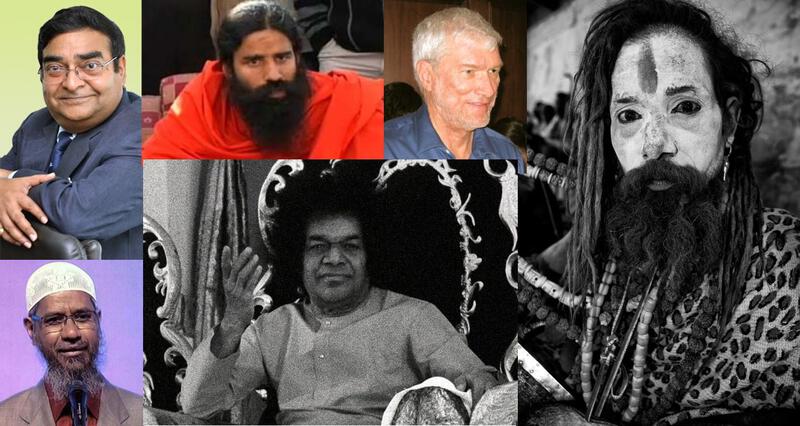Editorial – September 2015
Published on

Four year old Manu Sagar was a school going boy like most other children of his age. One day1, a man in mid 30’s took the boy from an anganwadi child care centre to his house, performed some pujas, cut the boy’s head, collected the blood into a vessel and sprinkled it all over his house. This did not happen in medieval India but in this very month.
This is not an individual case being sensationalised with all its gory description. Since the year 2000, about 2300 people were murdered2 and many more physically assaulted and ostracised in India under the suspicion of being witches. The states Jharkhand and Odisha are the ones worst hit by this dangerous epidemic of superstition. A direct effect of this superstitious behaviour is the unchecked rise of intolerance towards differences in opinion. This intolerance has grown to an extent that even the individual voices against superstition are being silenced in a targeted manner.
As has been widely reported, prominent rationalist and anti-superstition activist Dr. Narendra Dabholkar was murdered3 in 2013. He was the head of Maharashtra Andh Shraddha Nirmoolan Samithi (MANS) which had been trying to get successive Maharashtra governments to pass an anti-superstition bill. Rationalist and lawyer – activist Govind Pansare supported it 6 and criticised the extreme right wing forces that wanted to suppress the dissenting voice of Dr Dabholkar. He too was assassinated4. Religious Scholar Prof. M. M. Kalburgi criticised 8 some of the tenets of Lingayat faith. He too was murdered5 in cold blood.
This affliction is not unique to India. Among many incidents reported worldwide, four activists from Bangladesh – Niloy Chakrabarti, Ananta Bijoy Das, Washiqur Rahman and Avijit Roy were murdered6 by extremists for the “crime” of criticising religion. In Saudi Arabia, atheist blogger Raif Badawi was sentenced7 to 1000 lashes and 10 years in prison for the same “crime”.
One of the major concerns in irrational activities is that of mass superstition as seen in the worship of living humans as god(s) or their messengers. Masses throng to many such “god-men” who claim to perform supernatural phenomena by possessing unique mystic powers. Many rationalist activists8 have repeatedly shown that the purported supernatural powers are mere tricks. In spite of this, irrational tendencies in the public lead to immense popularity and clout of religious leaders. As a result, politicians of most parties flock to their support in order to gain sympathy from the devotees who also happen to be voters. As a result, if in case these religious leaders are alleged to be involved in civil or criminal cases, the investigation and the subsequent judicial proceedings get influenced by those in power and the victims’ right to justice is thwarted. They evade arrest for years ahead all the while victimizing many more innocent citizens. Eg. Swami Premananda of Tiruchirapally ashram in Tamil Nadu was convicted9 of raping thirteen women and a murder in 1997.
Apart from such clearly apparent effects, some dangers of irrationality are not clearly felt. An example is that of belief in Astrology, Vaastu etc. It is unfortunate that many among us still believe that the position and motion of planets in the solar system affect the individual lives of human beings, particularly in the aspects of their careers, relationships and so on. Culver et al.10 have shown that astrological predictions are nothing other than wishful thinking. Similarly, Jayant Narlikar et al. 11 have shown that astrology does not have any predictive power as far as academic ability is concerned. The rise of private television channels has also opened up a space on national television to peddle innumerable amulets and talismans supposed to usher in good luck and ward off the evil eye.
Other than incurring financial losses, irrationality is much more dangerous as seen in the form of blind reliance in ‘Alternate medicine’ practices. Claims that homosexuality can be ‘cured’11 by Ayurveda are factually misleading and bigoted against the rights of the LGBT community. While in all the above cases, irrationality was being rooted in religious beliefs, there are cases where it is rooted elsewhere such as in homeopathy. In a comprehensive review12, it has been proven that hundreds of trials have failed to deliver significant or convincing evidence to support the use of homeopathy for the treatment of any particular ailment. The practitioners of these methods are either ill-informed or malevolent and either, way play with the lives of millions of gullible citizens who end up without actual medical attention. Though modern medicine is not without ills13, it is the best possible option known to humankind.

Figure 2: The Economic Argument
In addition to homeopathy, there are other irrational beliefs that are not rooted in religion. Climate change denial-ism in the west had led to delayed 14 and diluted action against the pressing danger of global warming. This irrational denial-ism was sustained and propagated by corporations14 with vested interests in the fossil fuel industry. Similarly, anti-vaccination hysteria has led to an outbreak15 of measles decades after a vaccine was developed for its prevention. In both these cases, irrational behavior was co-opted by religious leaders and made the situation worse.
One of the fundamental duties, specified in our Constitution is to develop rational thinking, scientific temper and the spirit of humanism and reform. Rationality is one of the tools in the hands of ordinary citizens to critically examine the contemporary status quo and bring about reform in social, economic and cultural spheres. We request the members of IISc, as a premier science institute to lead the fight against harmful irrational practices and many such claims of pseudoscience using these tools.
We hope this will be an enlightening and educative experience for the readers, just as it has been for all of us who were involved in its production. We urge the readers to engage in the discussion by contributions as well as by giving us an honest feedback about the contents.
We wish you a thought provoking reading!
Image Credits
The Economic Argument -- by xkcd, released under the Creative Commons Attribution-NonCommercial 2.5 Generic license